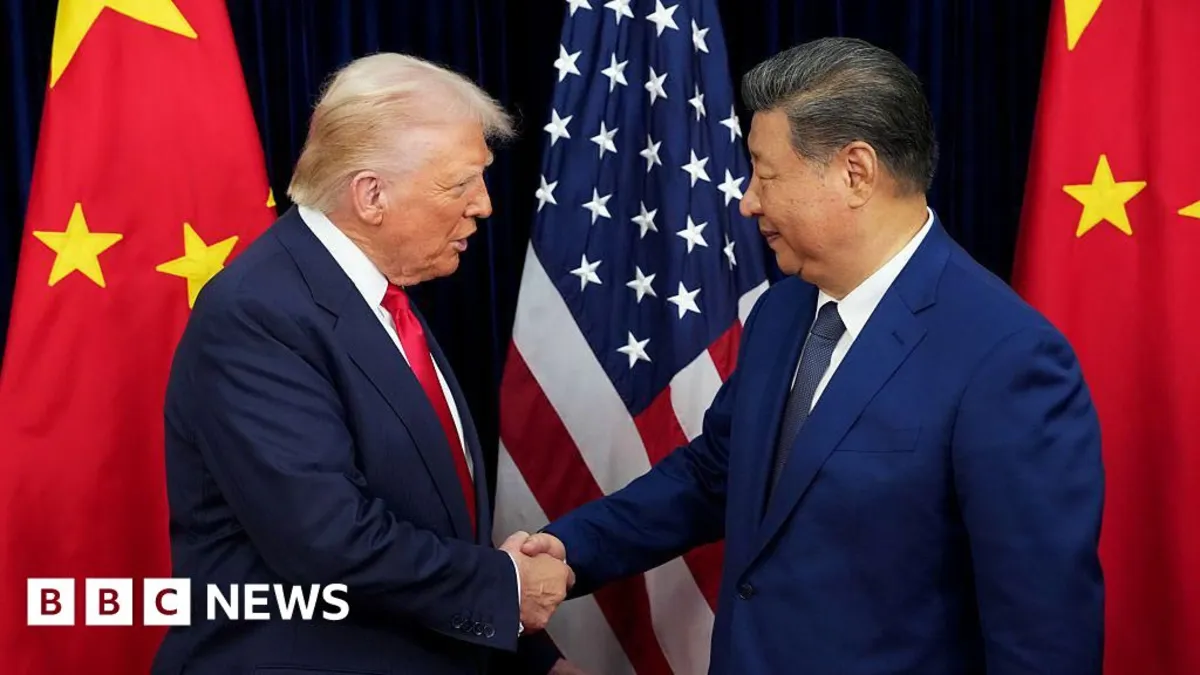
The White House announced that China will begin to ease its export ban on automotive computer chips, which are essential for car production worldwide. This decision comes as part of a significant trade deal reached between the United States and China during a recent meeting between President Xi Jinping and former President Donald Trump in South Korea. The announcement was detailed in a new fact sheet released by the White House, highlighting the cooperative spirit underlying this agreement.
In addition to the easing of the automotive chip export ban, the two nations have reached agreements concerning U.S. soybean exports, the provision of rare earth minerals, and the materials necessary for the production of the drug fentanyl. This trade deal marks a significant step toward de-escalating the ongoing trade war between the two largest economies in the world. The conflict intensified when Trump imposed tariffs on China after taking office, which led to a series of retaliatory measures and heightened global business uncertainty.
Liu Pengyu, a spokesman for the Chinese Embassy in Washington, emphasized that the agreements reached are mutually beneficial. He stated, "As President Xi Jinping noted, the business relationship should continue to serve as the anchor and driving force for China-U.S. relations, not a stumbling block or a point of friction."
Following the announcement of the trade deal, Treasury Secretary Scott Bessent expressed optimism about the future of U.S.-China relations. He stated, "We don't want to decouple from China… (But) they've shown themselves to be an unreliable partner." This reflects the cautious optimism surrounding the new agreements while acknowledging past challenges.
A critical issue addressed in the trade deal was the export of automotive computer chips. Concerns had been raised about potential global supply chain disruptions due to a shortage of chips from Nexperia, a Chinese-owned company with production facilities in the Netherlands. Approximately 70% of the chips produced by Nexperia in Europe are sent to China for completion and re-exportation to other countries.
The fact sheet specifies that China will take necessary measures to resume trade from Nexperia's facilities in China, facilitating the flow of crucial legacy chips to global markets. This development is timely, as companies like Volvo Cars and Volkswagen had previously warned that a chip shortage could lead to temporary plant shutdowns, while Jaguar Land Rover highlighted the risks posed to their business due to the ongoing chip shortage.
Alongside automotive chips, the trade deal also includes a one-year pause on China's export controls on rare earth minerals, which are essential for manufacturing cars, planes, and weapons. Additionally, the White House announced plans to reduce tariffs aimed at curbing the import of fentanyl, with China agreeing to implement significant measures to address this pressing issue. Fentanyl, a synthetic drug, has become a major contributor to opioid overdose deaths in the U.S., with many of its chemicals sourced from China.
Regarding soybeans, China has pledged to purchase 12 million tonnes of U.S. soybeans in the final two months of 2025 and 25 million metric tonnes annually for the subsequent three years, restoring trade levels that had been disrupted earlier this year when China halted purchases from the U.S. This decision significantly impacted American farmers, prompting Trump to reinstate a bailout program initially available during his first term.
This recent trade deal signifies a pivotal moment in China-U.S. economic relations, with both nations aiming to strengthen their partnership while addressing longstanding trade disputes. The easing of the export ban on automotive computer chips and commitments on soybeans and rare earth minerals represent steps toward a more stable economic relationship.